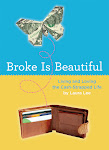I take you now to the DTE Energy Church. The corporate people stand and recite the Associations Creed:
We believe in money’s unending generative power.Pastor Pillsbury starts his sermon:
We believe in the Holy Profit.
We believe that efficiency creates growth and that growth is good.
We gather today to join in healthy competition, which rises all boats, in the name of our Lord Chrysler (born of virgin Bethlehem Steel, died and resurrected in 1979 in the miracle of the bailout.) We begin with a reading from the book of Monsanto.
Our Lord sat among his disciples, the ancient ancestors, Packard, Borders, Pan Am, General Foods, Delorean, The Pullman Company, Commodore Computers, Burger Chef, Statler Hotels, Studebaker and Enron, who betrayed him. Great crowds gathered around them, because they had sent out a well-worded press release.
The Lord reminded the disciples of the great prophet who came before, E.F. Hutton, a voice crying in the wilderness. When E.F. Hutton talked, people listened.
Lord Chrysler explained the meaning behind the parable of the sower of the seeds.
"A poor farmer went out to sow his field. Because he had not taken full advantages of farm subsidies, he had only a small patch of land, and his endeavors were not profitable. And as he sowed, some seeds fell along the path, and the birds came and devoured them. Other seeds fell on rocky ground, where they did not have much soil, and immediately they sprang up, since they had no depth of soil, but when the sun rose they were scorched. And since they had no root, they withered away. Other seeds fell among thorns, and the thorns grew up and choked them."
"In a neighboring field was a farmer with patented Monsanto seeds. These seeds were genetically engineered to be resistant to thorns. Some of these seeds blew across the road fell on good soil and produced grain, some a hundredfold, some sixty, some thirty. And Lo! the corporate person who held the patent sued the small human farmer for theft. The farmer was driven into bankruptcy and the field was purchased at foreclosure prices and growth for the corporate person was achieved and the Lord said this was good. He who has ears, let him hear!"
"Those who hear will have everlasting life in the laissez-faire paradise where the one true free market reigns. There the will of the Lord will be carried out with ultimate, transcendent efficiency. In the Kingdom buying and selling will be pure, unhindered by utility or human person needs and desires. Truly I say to you, the Kingdom will not come until the corporate people have proven themselves by devoted service to the needs of their shareholders and rejected the heresy of so-called stakeholders. When corporates have reached that perfect state of purity the flesh-people will be left behind and the corporate people raptured to that place of moving numbers, trading without end, increasing exponentially, glorious, infinite-- an economy of the greatest scale."
And then the Lord said, "If you want to be perfect, go sell all your possessions to the poor at 30% interest, and you will have a treasure. Truly I tell you, it is impossible for someone who is poor to enter the Kingdom. It is easier for a camel to go through the eye of a needle than for someone who is poor to enter the Kingdom."
After a moment of silent reflection, the corporate people sang a traditional hymn:
"The Debtor Paid It All." Then they took up a collection for royalty fees to Disney for having sung it.
The service concluded, as it often did, with a reading of the "Sermon on the Piece of the Rock" sponsored by Prudential. (Formerly known as the Beatitudes back when it was sponsored by Beatrice Foods.)
Blessed are the rich in spirit, for they shall have the habits of highly successful people.
Blessed are those who re-invest, for they shall be the winners.
Blessed are the marketers, for their brand names will have the most impressions.
Blessed are those who hunger and thirst for profits, for they shall receive their bonuses.
Blessed are the competitive, for they shall create market efficiencies.
Blessed are the self-made, for no one should have to help you.
Blessed are the warmongers, for they shall get government contracts.
Rejoice and be glad, for your reward is great. Really, really great. Seriously, you will get such a huge reward you'll need six accountants to keep track of it.
The Lord is my CEO. I shall not want... for anything... ever.
In the name of the Dow. Amen.







